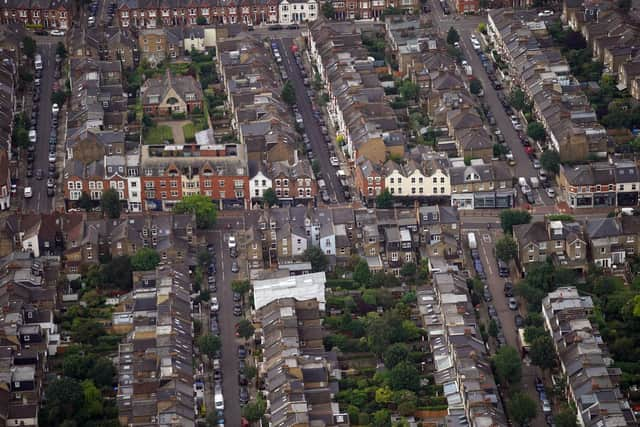Calls for help for Wigan's unpaid carers as data reveals nearly one in eight lack own transport and cope with bad health
and live on Freeview channel 276
A total of 3,047 households – 12 per cent of the borough’s 25,419 homes with an unpaid carer – fell into this category at the time of the 2021 census.
That matched the national average, with nearly half a million households across England and Wales (486,341) – the equivalent of 12 per cent of all households with at least one unpaid carer – matching these criteria.


Advertisement
Hide AdAdvertisement
Hide AdThe findings come at the start of Carers Week, an annual campaign to recognise the contribution made by the UK’s 5.7m carers.
Helen Walker, chief executive of Carers UK, said the statistics demonstrate the “huge challenges” faced by many unpaid carers and called for more to be done to raise awareness of the financial, physical and mental health impacts.
In 24 local authorities in England, at least 20 per cent of unpaid carer households at the time of the census had no access to a car or van and had someone identified as disabled or in bad or very bad health, according to analysis by the PA news agency.
The top 12 were all in London, while Liverpool stood at 23.6 per cent (8,418 households) and Manchester at 21.9 per cent (6,735).
Advertisement
Hide AdAdvertisement
Hide AdThere is a clear north-south split when it comes to the type of accommodation lived in by these households.
For households in terraced homes, the highest proportions are found in northern England – while those for flats, apartments or maisonettes are mainly in the south.
Ms Walker said: “Looking after a disabled, ill or older relative or friend unpaid can be rewarding, but it’s clear to see how many families face huge challenges; lack of transport, difficulties with housing, barriers to juggling work and care, poorer health and well-being and a negative impact on their finances.
“The shortage of care, lack of breaks and low carers’ benefits has left many feeling exhausted and at the end of their tether. Unpaid carers deserve better.”
Advertisement
Hide AdAdvertisement
Hide AdShe called for a “step change in the way that Government and society supports and recognises carers”, but added that employers can look at supporting employees who are juggling work and care, and society can help by ensuring family and friends are alerted to information “which might make all the difference to someone we care about who is providing unpaid care”.
PA’s analysis also found there were 16,784 unpaid carer households in England and Wales living in caravans or other kinds of mobile or temporary homes.
Carers UK’s own polling found almost three-quarters (73 per cent) of people in the UK who are providing, or have provided, unpaid care have not identified themselves as a carer. The organisation said this equates to around 19m people.
A Department of Health and Social Care spokesman said: “We’ve earmarked £327m through our Better Care Fund this year to support local authorities with health and care services, including providing carers with advice, support and short breaks and respite services.
Advertisement
Hide AdAdvertisement
Hide Ad“We continue to provide financial support to unpaid carers through carer’s allowance and we are finalising plans for how we deliver up to an additional £25m to support carers and hope to share those shortly.”
